ARNECC Paper Talks 2.0 – Net Zero Series #2: Electric Vehicle (EV) and Driving towards Sustainability: Comparison between EV, HEV, PHEV, and ICE Vehicles to Achieve Net Zero Emissions by 2050 from EV
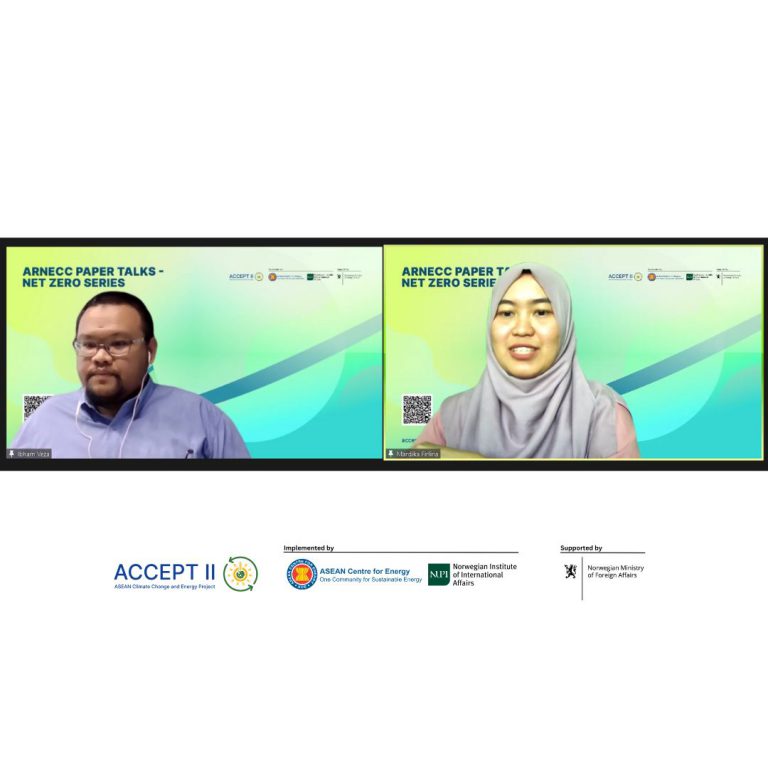
On November 30th, 2023, the ASEAN Climate Change and Energy Project (ACCEPT) Phase II launched the second episode of ARNECC Paper Talks 2.0 – Net Zero Series, exploring the role of electric vehicles (EV) in achieving the Net Zero Target. Dr. Ibham Veza from Universiti Teknologi PETRONAS presented the publication titled “Electric Vehicle (EV) and Driving towards Sustainability: Comparison between EV, HEV, PHEV, and ICE Vehicles to Achieve Net Zero Emissions by 2050 from EV” with Ms. Mardika Firlina from ASEAN Centre for Energy took the role as the moderator.
Integrating 100% renewable energy into electricity systems: A net-zero analysis for Cambodia, Laos, and Myanmar
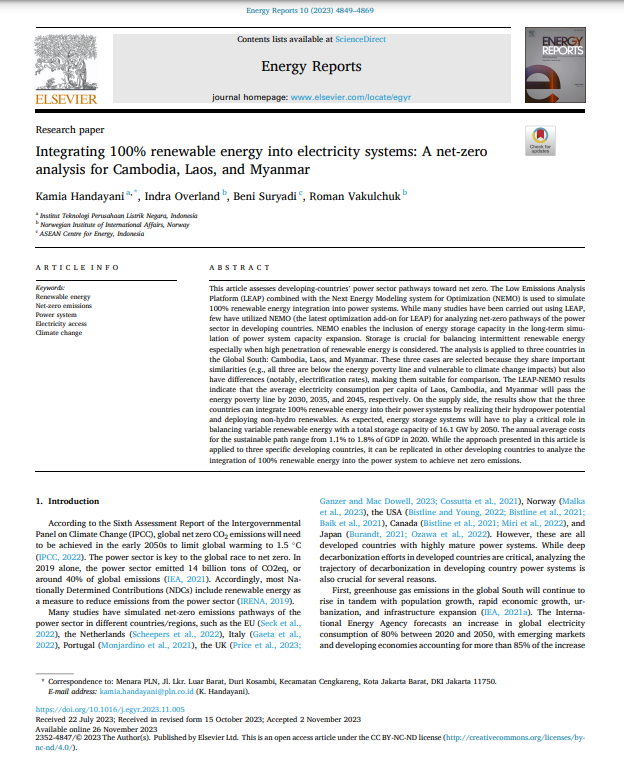
ACCEPT II Contributes to Panel Discussions on the Implementation of the EU Carbon Border Adjustment Mechanism

ACCEPT II had the opportunity to be invited as a panelist in discussions on the new EU Carbon Border Adjustment Mechanism (CBAM).
COP27 Output on Supporting ASEAN’s Huge Potential on Reducing Emission
The COP27 and Article 6 may bring the 10 ASEAN Member States (AMS) energy policymaker’s attention where it seems to be a supporting element for ASEAN to transitioning energy and reducing emission.
ASEAN’s energy transition: how to attract more investment in renewable energy
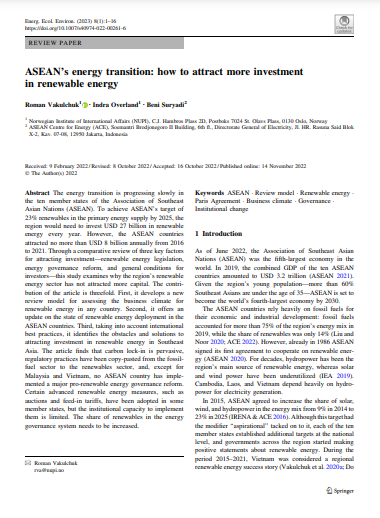
Through a comparative review of three key factors, namely: renewable energy legislation, energy governance reform, and general conditions for investors; this paper identified the obstacles and solutions to attract investment in renewable energy in ASEAN region.
ASEAN Energy and Gender Report: Development Finance
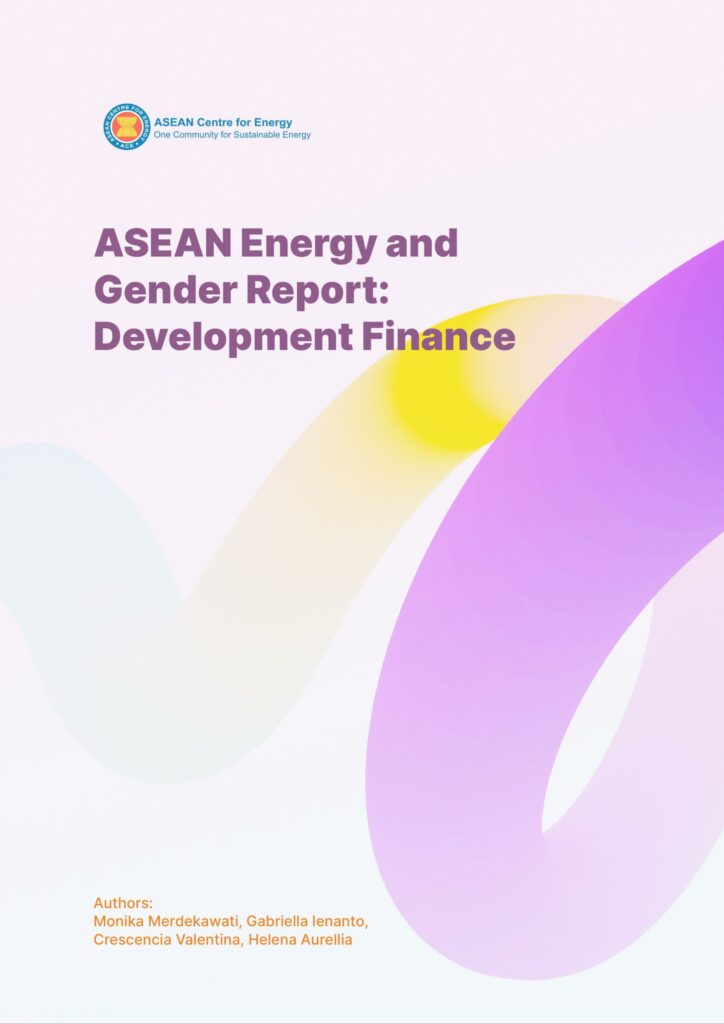
The Joint Ministerial Statement of the 39th ASEAN Ministers on Energy Meeting in 2021 reaffirmed the regional priority to enhance energy resilience and improve energy security and thereby forming a foundation for an inclusive and just energy transition.
Guidelines for Developing Indicators to Track Action on Energy-Related Climate Change Mitigation Policies
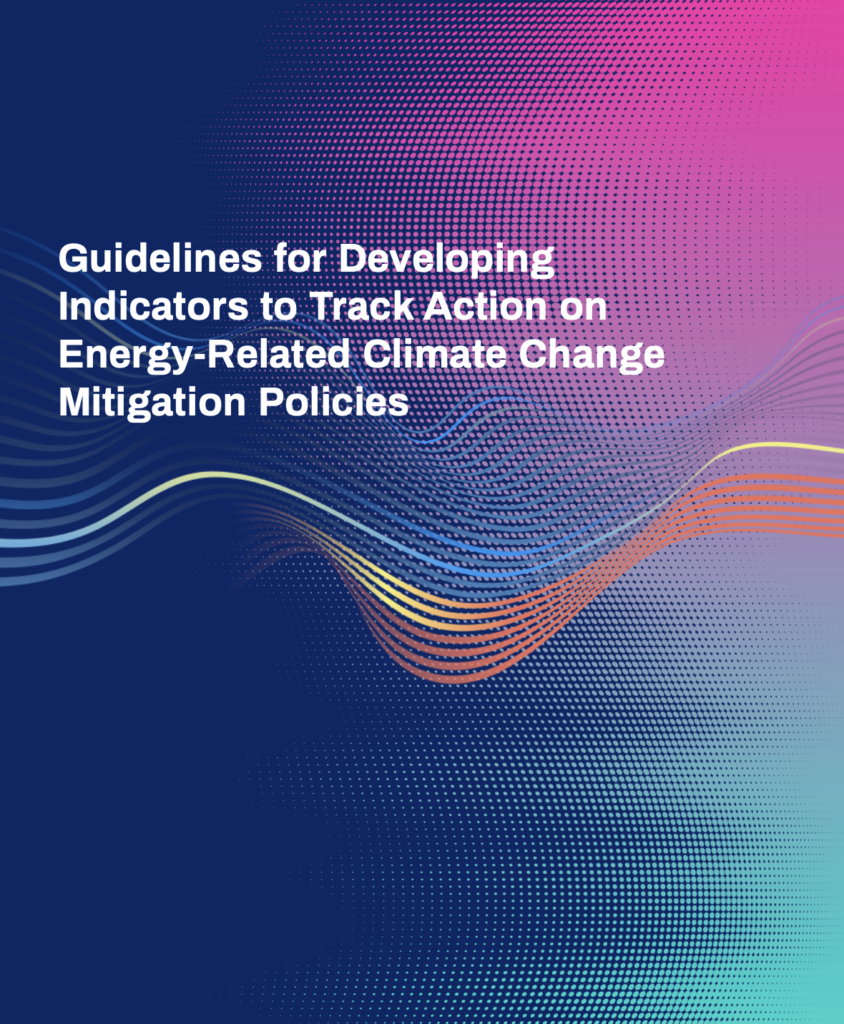
The world’s commitment to realising the Paris Agreement has resulted in the development of climate change mitigation policies relating to several sectors, including the energy sector. Enhancing the collection and collating
of energy statistics will help to improve the formulation, planning, execution, monitoring and outcomes assessment of the policies. To be successful, policies must be based on appropriate indicators and high-quality data. This report provides guidelines for creating good indicators that can be used to track action in the energy transition. By presenting international guidance on energy statistics used globally, best practices in energy-related
climate change evidence-based policies and case studies from the ASEAN countries, this publication aims to lay out the essential knowledge needed to equip the policy makers.
ASEAN CO2 Emissions from Coal-Fired Power Plants: A Baseline Study
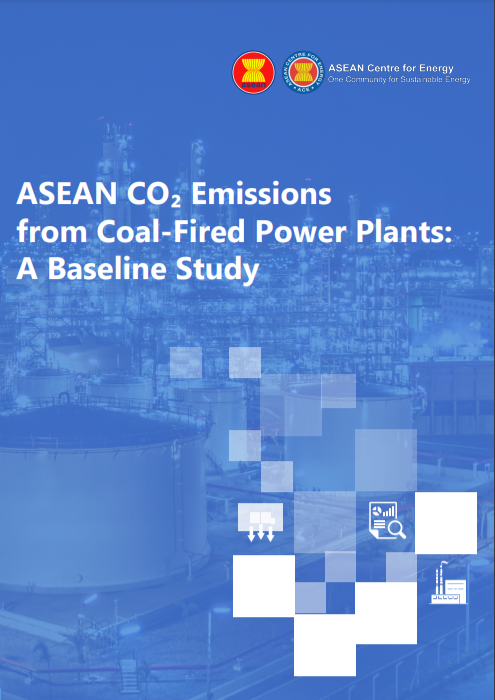
Fossil energy is the principal source of the current and future energy supply for the Association of Southeast Asian Nations (ASEAN). More than three quarters of ASEAN’s total energy consumption is expected to be met by fossil fuels till 2040. The ASEAN region is rich in coal resources and according to the Baseline Scenario profiled in the 6th ASEAN Energy Outlook, coal fired power plants(CFPPs) are expected to generate 3,123 terra-watt hours of electricity, accounting for 25.7% of total electricity production in 2040.











